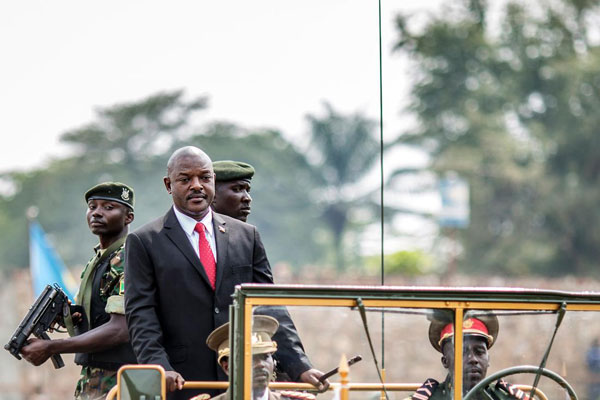Independence day in Africa is meaningless
Every year on July 4, Rwanda marks Liberation Day. No, not the day the country gained its independence from colonialism. It is the date in 1994 when the Rwanda Patriotic Front led by Paul Kagame marched into Kigali and ended the genocide against the Tutsi.
About a year ago, I asked a friend who works for the Rwanda Broadcasting Authority: “When do you celebrate your Independence Day?”
The man, without hesitation or bitterness, said: “We don’t celebrate our Independence Day… it is meaningless”.
Profoundly stunned, I struggled to digest his sacrilegious answer.
Independence Day meaningless? In Kenya and the rest of Africa, the day when we gained our independence is a ‘holy day.’ During ceremonies to mark the occasion, priests, in full religious regalia, invoke imagery of Israelites escaping the slavery of Pharaoh. With the fervour of true believers, speakers describe the day as glorious, blessed, or sacred. The nationalist leaders who led our countries to independence are spoken of as founding fathers, in the same sense as God is also the Father. They are our saviours, in the same sense as Moses. They are our latter-day prophets, selflessly doing God’s work on earth.
This deification began immediately after Independence, instigated by the nationalist leaders themselves, a process Ali Mazrui described as “sacralisation of political authority.” And as Prof George Ayittey notes: “…the independence leaders heaped vainglorious epithets upon themselves: Osagyefo, the Guide, the Messiah, the Redeemer, the Teacher”.
A MILESTONE
Independence Day is also depicted as a milestone separating two periods: the colonial era of oppression and impoverishment and the independence era of freedom and prosperity.
In addition, through subtle and not-so-subtle indoctrination, Independence Day also became indivisibly connected with the way we thought of ourselves. As we sang our national anthems, whose lyrics recalled the heroic struggle, and as we saluted the national flags, whose colours symbolised the glory of independence, we were inculcating in ourselves a deep psychological association of our identity with our independence. So the questions, “What is Africa?,” “Who are we?” could only be understood in relation to colonialism, the struggle against colonialism and eventual independence. Our identity became inextricably linked to our independence.
After 50 years of this cultural, political and psychological indoctrination, we had come to see independence as the be-all and end-all of African ambition, and as an essential marker of our African-ness.
But now, my Rwandese friend’s answer was questioning the independence narrative and its associated psychology. “You see,” he explained, after seeing my profound bewilderment, “independence did not bring socio-political freedom or economic progress, only impoverishment and cyclical mass murders.”
THE DIRECTION
Granted, many intellectuals had criticised the direction independence had taken. Ayi Kwei Armah, for instance, in his novel The Beautyful Ones Are Not Yet Born, had exposed the rot of Kwame Nkrumah’s Ghana. And Ngugi Wa Thiongo’s A Grain of Wheat was really a poignant lament about the collapse of the vision of equality and prosperity that had inspired the independence struggle. But no one had ever questioned the validity of Independence Day, and exposed its cultural, political and psychological underpinnings and associations as false.
And yet, incredibly, this falsehood had been proclaiming itself in tragic fashion over the years.
Every Independence Day, we flocked to national stadiums, even as we suffocated under 50 per cent unemployment rates. We wore T-shirts of Nkrumah or Jomo Kenyatta and forgot their police states. We shouted, “Viva Independence!” to suppress the shame of thousands of Africans choosing to risk drowning in the high seas rather than die of poverty at home. We flocked faithfully to stadia, even as criminals like Idi Amin murdered thousands. We sang of our unity on Independence Day, then hunted each other down with machetes on Election Day.
At conferences, scholars discoursed endlessly on independence and colonialism, forgetting that India and China, too, had been colonised but were now moving millions from poverty, and the urgent discourse was on how to catch up with the West within the shortest time possible.
As I reflected on these matters, I thought how right my friend was. Independence Day, including its narrative and associated psychology, was meaningless. It was a tragic pantomime that served only one purpose; to make us forget our misery and those responsible for it; our leaders and ourselves. Any wonder that Africans, and especially their presidents, so love Independence Day celebrations and its underpinning narratives!
Tee Ngungi is author, ‘Seasons of Love and Despair’.
teengugi@gmail.com
The piece originally was published in the Daily Nation

